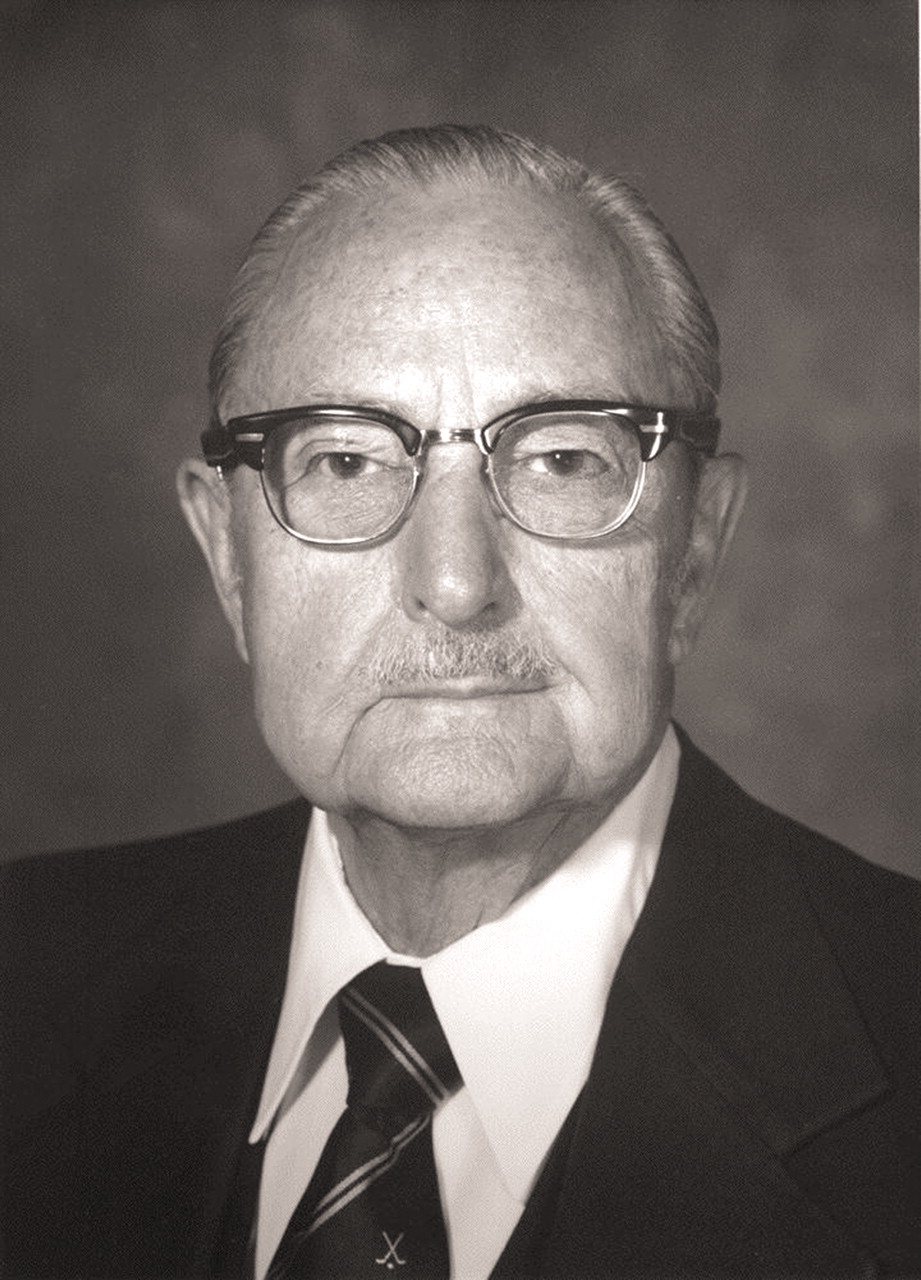Many of us knew
Ray as a wise, dedicated leader of APA (President, 1969–1970; Distinguished Service Award, 1988) and a pivotal voice in American psychiatry for half a century. We in Michigan knew him also as a dominant force in Michigan medicine and psychiatry for many years.
Ray always wanted to be a doctor. In fact, at the age of 5 he began carrying a doctor’s bag with him wherever he went. He became an M.D. at the tender age of 22 and has been a pioneer, innovator, and benefactor ever since. Ray did not really plan to be a psychiatrist; rather, he contemplated becoming a neurosurgeon. He ended up receiving training in both neurology and psychiatry and was considered a neuropsychiatrist. He was Chair of the Department of Psychiatry at the University of Michigan from 1937 to 1970. He immediately set up a three-room psychiatric unit, one of the first units in a general hospital in the country. Dr. Waggoner built an eclectic department with breadth and class, an academic model for the nation. He was a superb administrator, and the department grew and prospered under his strong leadership.
In a tribute to Dr. Waggoner, Dr. John Greden, the present Chair of Psychiatry at the University of Michigan, noted that Dr. Waggoner’s department contained “a healthy eclecticism, diversity and vibrancy, excellent clinical services, and scholarly teaching and research. Clearly, Dr. Waggoner has helped to establish the Michigan tradition of excellence that we proudly inherit and build upon.” Ray was a jet setter before jets, a mover and shaker at home and abroad.
Ray has left a fabulous legacy. What I recall vividly is his caring. He has helped the careers of many, indeed he has taught an entire generation of mental health professionals—a living legacy of psychiatrists and professionals in other disciplines who trained under and with him. He has changed the field of psychiatry and has aided and supported many people in a myriad of ways. He has been a true and loyal friend!
Dr. Waggoner was always ahead of his time, e.g., in his attempts to bridge the gap between the Freudian (psychological) model and biological (neuroscience) model by nurturing a healthy dynamic tension between the two. He presaged and encouraged the biopsychosocial model of today, early on seeing mental illness as both an emotional and physical problem. He always considered the patient as a total person. He was the “compleat physician,” whether consulting with Masters and Johnson or integrating medical and psychiatric care by developing a first-rate consultation-liaison service.
In the 1940s, Ray helped to standardize the mental fitness criteria used in screening potential soldiers in the Selective Service. He also advised the U.S. Surgeon General on the psychological effects of World War II and the Allied Occupation in Germany and Japan. After the war, he helped devise the selection process for the Peace Corps, where I first met Dr. Waggoner and tried to keep up with this whirlwind of a man—a dynamo who is perhaps best remembered as a consummate administrator who listened to opinions and then made decisions. I remember him as an optimist, always feeling that with the right tools we could accomplish what others considered impossible. And he often did.
Ray also had a strong interest in ethics and values, which he saw as combining the human and humane. In fact, in 1995 the University of Michigan established the Raymond W. Waggoner Lectureship on Ethics and Values in Medicine in his honor. Indeed, Dr. Waggoner was a giant in his time and serves as an inspiration to us all.


